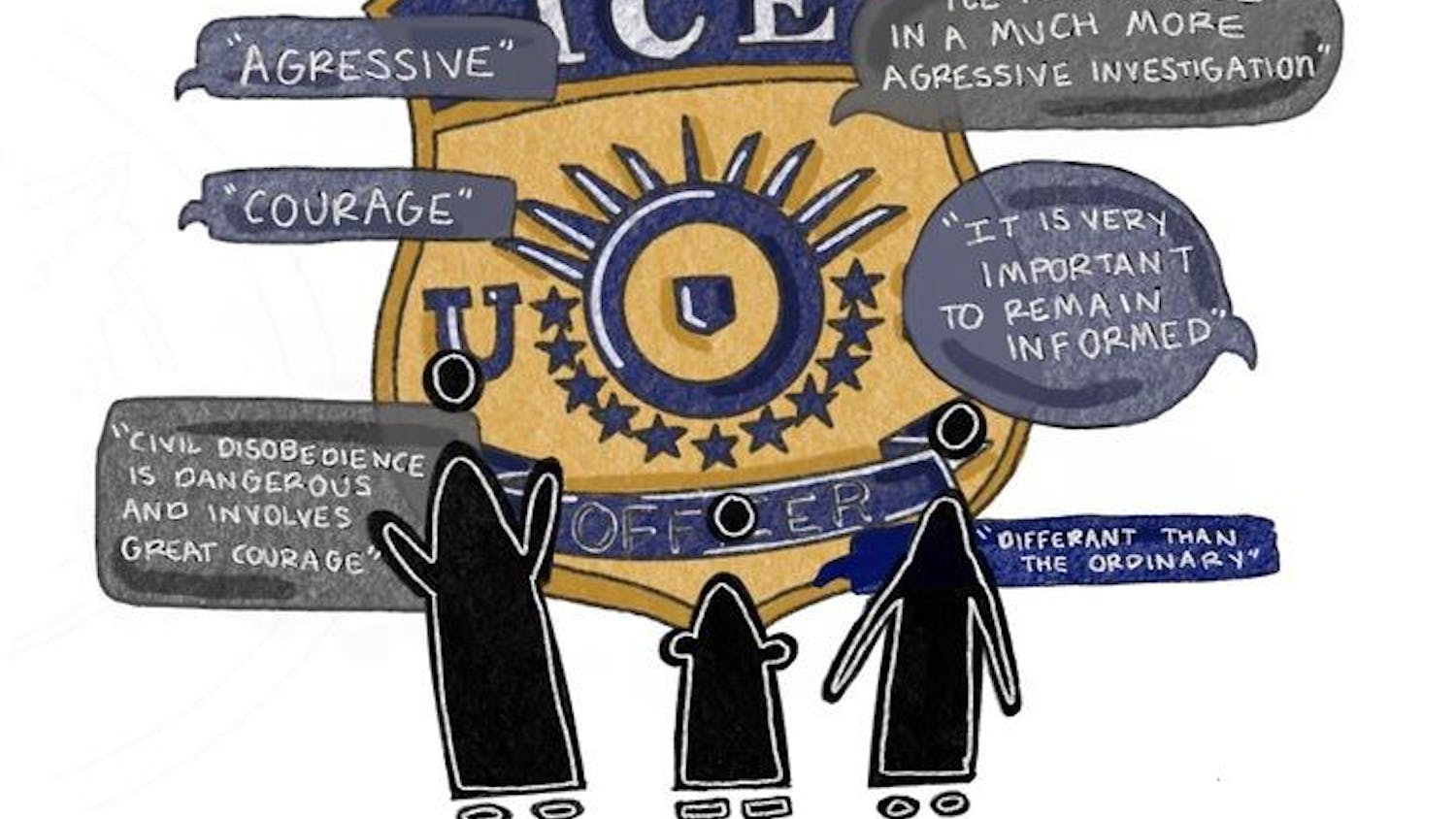After pausing mid-sentence for 17 seconds, former Atlanta City Councilman Derrick Boazman struggled to hold back tears as he wondered why two-year-old A.J. Burgess’ life meant so much to him.
“I have not been able to speak about this without getting deeply emotional, and I don’t know why,” Boazman said during a panel about Burgess’ family’s efforts to secure a vital kidney transplant. Later during the panel, Boazman said, “[Burgess is] a symbol of an oppressive system that we live under. He’s a symbol even at an institution like Emory, at a hospital where doctors swear to do no harm. He’s a symbol of the lack of access to health care, even in a country as rich as this one, where even at this very hour, people who are very powerful and who have health care are denying people who don’t.”
The panel of five speakers supporting Burgess’ family’s efforts to secure a kidney transplant spoke to about 45 Emory students and faculty at the Nov. 15 forum at Emory about Burgess’ progress, social justice and faith.
The panel, organized by Leea Allen (19T), included former Atlanta City Councilman Derrick Boazman, Sankofa United Church of Christ Reverend Derrick Rice, Burgess’ family attorney Mawuli Davis and Professor of Pastoral Theology, Care and Counseling Emmanuel Lartey.
Burgess was diagnosed Oct. 29 with peritonitis, an inflammation of the abdominal tissue often caused by an infection. He received his life-saving kidney transplant surgery Nov. 22 from a deceased donor.
Burgess was scheduled to have a kidney transplant surgery early October, but EUH canceled the surgery after Dickerson violated his probation Sept. 28, according to the Atlanta Journal-Constitution. Local community members held several vigils and protested against EUH, calling for Emory to allow the surgery.
Rice said that he believes race was factored into the EUH’s decision to monitor Dickerson’s behavior for three months.
“If you don’t see race, if you don’t see class, if you don’t see some demographic … then we’re not looking at the story seriously,” Rice said.
Allen also presented a video interview with Anne Spaulding, associate professor at the Rollins School of Public Health. In the video, Spaulding said that the medical system should not determine a person’s competence by a criminal record.
“Just because someone has that involvement [with incarceration], I think we can’t say that they’re morally less likely to do what’s asked of them by the medical system,” Spaulding said. “I think better predictors of whether or not someone is going to take care of themselves is how they have been able to take medication that they’ve felt motivated to take in the past.”
The audience was invited to sign a petition created by Emory students.
The forum was sponsored by the Candler Black Student Caucus, Candler Creation Keepers, Candler Social Concerns Network and the Graduate Student Government Association (GSGA).
Elizabeth Rogers (18T) said that Burgess’ case highlights issues of social class.
“We are to be concerned with human flourishing for all people, not just of people of certain social status,” Rogers said.
James Vant (20T), said that Burgess’ story strikes a chord with him.
“Baby A.J. could’ve easily been my nephew, could’ve easily been my friend, could’ve easily been someone I know,” Vant said. “If I’m not willing to stick up for A.J., then I’m not going to be willing to stick up for something that hits home for me.”
Read More
Trending









